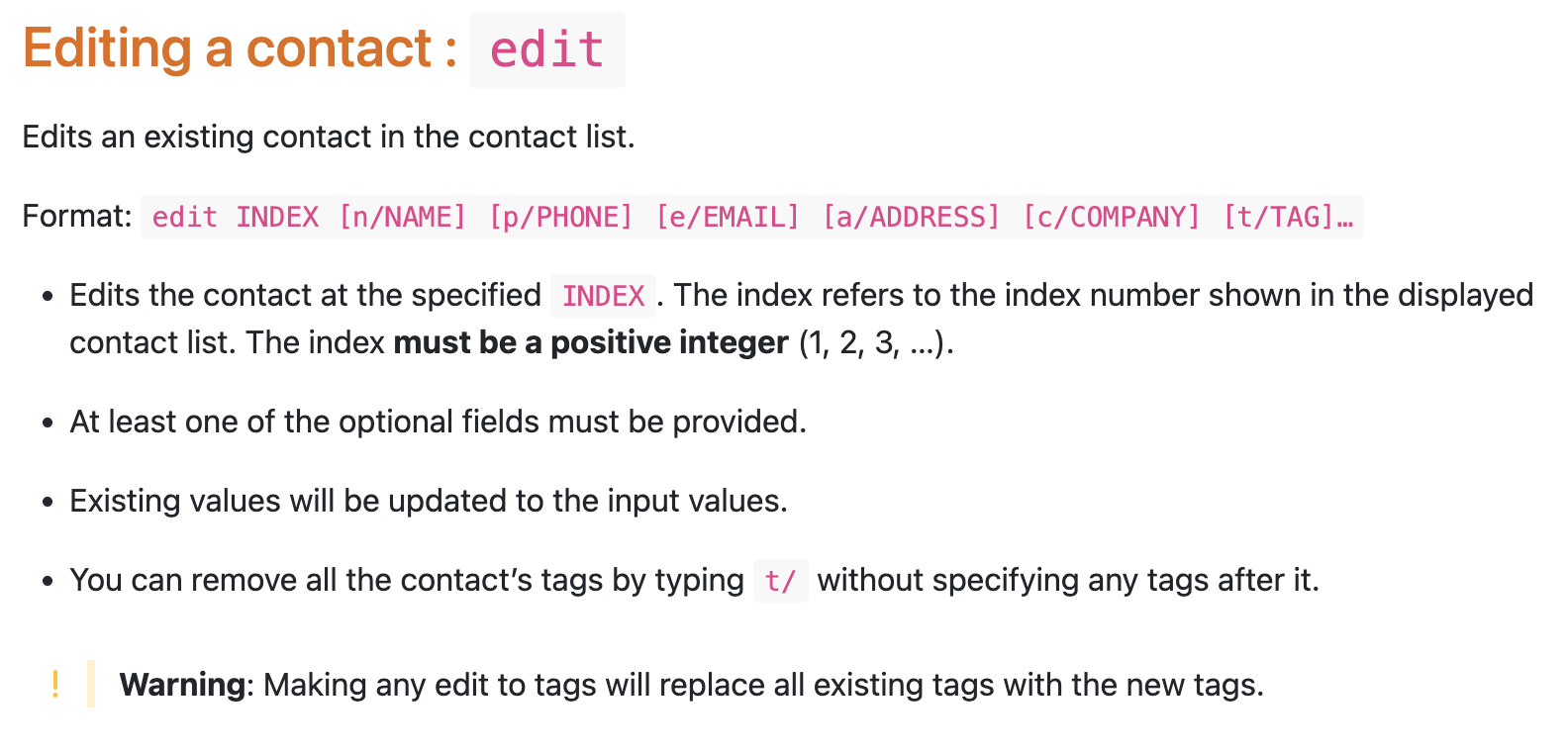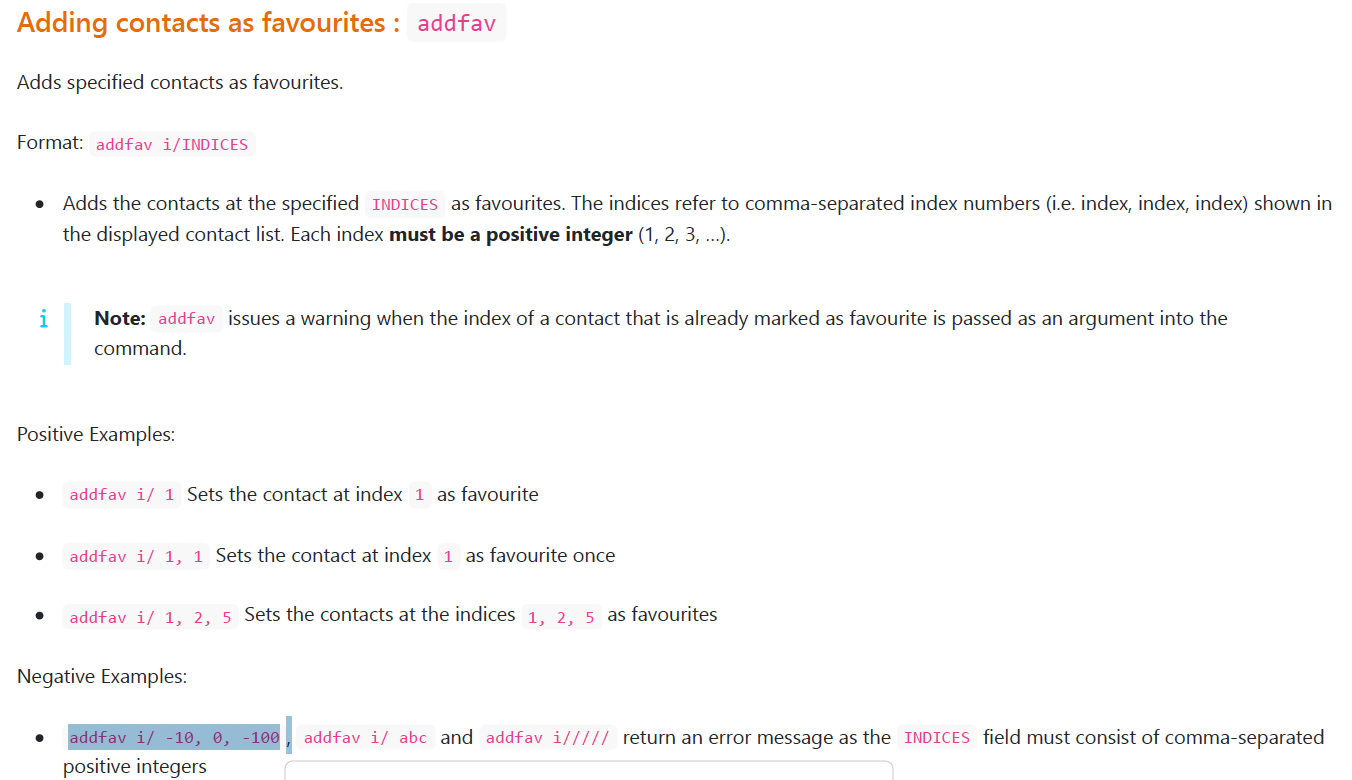Team's Response
This is not a bug.

Furthermore, the UG had specified positive integers (1,2,3,...)
Reasonable users would not think of signed / unsigned when attempting to input an index.
Items for the Tester to Verify
:question: Issue response
Team chose [response.Rejected]
- [x] I disagree
Reason for disagreement: I think that it is reasonable for users to put a sign when specifying an index considering in the UG, you specified a negative signed integer as a negative example.

I don't see why this could not have been done for other commands or why the word 'unsigned' could not have just been mentioned. To include a signed integer as an example in the UG itself already shows that user might consider doing so. You only did so for negative though, and not for positive signed integers.
Few users would add a positive sign in front of the number does not discount the fact that it is a bug. The error message above clearly states that INDEX (must be a positive integer). If intentions were clearer, it should be must be a unsigned positive integer.
The multiple examples states (1, 2, 3...) yet it is still up to the reader's interpretation of what a positive integer is. It can't be dependent solely on the example numbers if not the argument can be that since '4' is not listed in the example, means I can't use '4'. Hence, it is not about the examples but the definition of the parameter which in this case is a positive integer and '+1' is a positive integer.
Steps to reproduce
edit +1 n/Alex YeohExpected No error message to be shown because it doesn't state in the UG if it is unsigned or signed so both should be accepted
Actual Error message shown